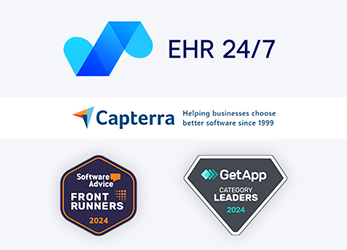EHRs and Patient Engagement: Strategies for Success

Electronic health records (EHRs) can help doctors and patients work better together. They improve communication, save time, and make healthcare easier to understand. When used correctly, EHRs encourage patients to stay involved in their care. Here are five simple ways EHRs can improve patient engagement.
Boost Patient Engagement with Patient Portals
Many EHR solutions have an integrated patient portal, which is a secure app or website for patients to see their health records. These portals let them check test results, request appointments and send messages to their doctor. This type of tool helps patients stay informed and involved in their care.
For example, patients can log into the portal to see their latest lab results or review their treatment plans. With this easy access, patients can better prepare for appointments and feel more in control of their health.
Increase Patient Interaction Time Because of EHR Automation Features
Doctors and nurses must spend a lot of time on tasks like filling out forms or updating records. Because many EHR solutions can handle these jobs automatically, it gives healthcare providers more time to focus on patients.
Providers who spend less time on paperwork have more time to listen to patients. This makes patients feel valued and improves their overall experience. Automation also helps reduce errors, which leads to better outcomes.
Establish Patient Trust With Transparent Data Policies
Patients need to feel that their personal information is safe. Many EHR systems provide security features for users. These may include security notifications, access logs, and privacy settings within patient portals. Security features allow individuals to see who has accessed their records. Doctors can show patients that their records are secure and only shared when necessary.
This openness builds trust. Patients who feel safe are more likely to use patient portals. Clear communication about data safety improves patient engagement. It shows that doctors care about their privacy and data security.
Automate Routine Tasks with EHR Tools to Focus on Patients
EHRs can often simplify healthcare by automating appointment reminders which can save time for both doctors and patients.
By letting EHRs handle mundane tasks, doctors can spend more time discussing patient concerns. This personal attention improves patient engagement because patients feel their health is the priority.
Customize Patient Communication for Improved Outcomes
Every patient is different. Many EHR solutions have features that make it possible to send personalized messages and reminders. For example, a doctor can use their software to remind patients about yearly check-ups or give advice based on their health history.
This personal approach helps patients feel cared for and supported. This promotes better care and stronger relationships with providers.
Bringing Patients and Providers Together with EHR Software
Electronic health records (EHRs) are powerful tools. They can improve the connection between patients and providers by simplifying healthcare and offering features like patient portals, automated reminders, and personalized communication. These tools help patients stay informed about their health, making it easier to follow care plans and work with their doctors.
Choosing the right EHR software is the first step in improving patient care. A good system should be easy to use, secure, and flexible enough to meet your practice's needs. EHR 24/7 by Office Ally is designed to do all this and more. Using the right tools can give patients the attention they need while improving your team’s efficiency.
Explore EHR 24/7 today to see how it can help your practice build stronger patient relationships and deliver better care.







.svg)

.png)








